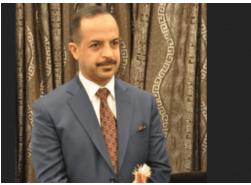The Government of Iraq has launched a new national education strategy to improve access to quality education for Iraq's 33 million citizens.
"This is Iraq's first ever national education strategy, which is unique in both Iraq and the region," said Dr. Mohammed Ali Tamim, Iraq's Minister of Education. "This strategy will respond to the needs of over 8 million students presently in school and an additional 3 million students in alternative education programmes."

(Source: UNICEF)
The strategy focuses on a number of components, including providing free and accessible education to children and youth from pre-school to higher education as well as ensuring a high quality education based on global best practices.
"This strategy presents a serious and ambitious roadmap to bring about a qualitative improvement in Iraq's education sector," said Dr. Ali Al-Adib, Iraq's Minister of Higher Education. "The investments that it sets out will improve the political, economic, social and technical structures in the country."
The strategy aims to enhance social reintegration and cohesion as well as prevent social exclusion within Iraqi society. It calls for financial resources to be dedicated to ensure adequate educational, psychological and social support for the most marginalized individuals across Iraq.
Key educational targets in the strategy include increasing Iraq's pre-school enrolment rate from the current rate of 7 per cent, to 22per cent by 2020, as well as the primary school enrolment rate from today's 93 per cent to 98 per cent by the end of 2015.
"We applaud the Government for its commitment to ensure all children have the right to a quality education, especially the thousands of children who are currently missing out on the timely development of the competencies, skills and opportunities that a quality education will provide them," said Dr. Marzio Babille, UNICEF's Representative to Iraq. "We now look forward to working so that all children complete their primary education on time and continue on to secondary school."
The strategy also emphasizes the importance of having quality curricula, institutions, and resources in higher education.
"With an emphasis on improving secondary and post-secondary education, this strategy responds to Iraq's basic needs in education in the short term, while stimulating a longer term competitive knowledge-centred economy," said Mohamed Djelid, Director of the UNESCO Office in Iraq. "It has been designed to constitute the foundation of a modernized Iraqi State where decision-making is based on research and planning."
"With the full implementation of this strategy, Iraq will meet the aspirations of its citizens for quality education and lay the cornerstone for a competitive 21st century economy" said Mrs. Marie-Helene Brisknell, the World Bank's Special Representative to Iraq.
The national education strategy was developed by a committee of education experts and advisors within the ministries of education and higher education in Baghdad and Erbil, with international technical expertise and guidance provided by UNICEF, UNESCO and the World Bank. The strategy was developed through a series of nationwide consultations since 2008.





